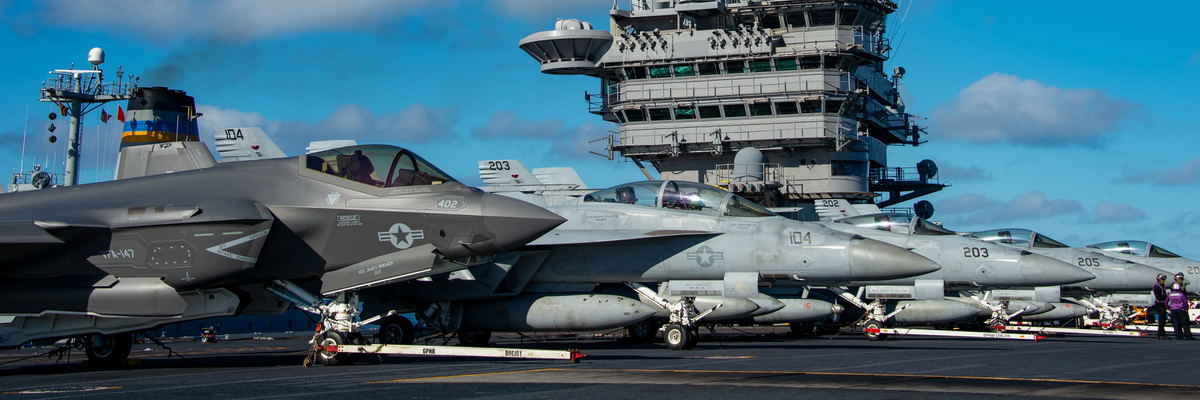Despite historic levels of forced displacement due to armed conflict, Group of Seven member countries have increased their military expenditures to record highs while they slash spending on humanitarian aid for people affected by wars that these powerful nations often started or stoked, an analysis published Friday revealed.
According to Birmingham, England-based Islamic Relief Worldwide, military spending by G7 members Canada, France, Italy, Germany, Japan, the United Kingdom, and the United States—which wrapped up Friday in Puglia, Italy—rose to $1.2 trillion last year, the overwhelming bulk of that amount attributable to the U.S.' $886.3 billion Pentagon budget.
"Too many governments are putting far more resources towards acquiring weapons of war than helping those suffering the deadly impacts of conflict."
That's a 7.3% increase over 2022 levels, and 62 times what those countries spent on all humanitarian aid in response to wars and disasters.
"From Gaza to Sudan, Ukraine to Myanmar, we see millions of lives destroyed by war," Islamic Relief head of global advocacy Shahin Ashraf said in a statement. "The humanitarian needs today are greater than ever before, so it's scandalous that many wealthy G7 nations are cutting aid while spending more than ever before on weapons."
It's not just the G7. According to this year's Stockholm International Peace Research Institute annual analysis, global military spending increased 6.8% to a record $2.4 trillion in 2023.
"Too many governments are putting far more resources towards acquiring weapons of war than helping those suffering the deadly impacts of conflict," Ashraf asserted. "More must be invested in eradicating poverty and fostering peace and development, not fueling war and destruction."
Islamic Relief Worldwide said:
While some of the discussions at the G7 summit focus on restricting immigration into rich developed nations, most people displaced by conflict remain in war-torn countries and impoverished neighbouring countries. After more than a year of brutal war, Sudan is now the world's biggest displacement crisis with over 10 million people—about a quarter of the population—now forced from their homes. The vast majority of people fleeing the violence in Sudan remain in the country, with many receiving aid from local communities, youth groups, and mosques.
"As rich nations increasingly shut their borders and cut aid, in places like Sudan it is heartening to see the generosity of some of the world's poorest communities taking displaced people into their homes and sharing their food and water with them," said Ashraf. "But they need more international support, especially from the wealthiest countries."
Another analysis published ahead of the G7 summit by Oxfam International revealed that just 3% of the seven countries' 2023 military expenditures would be enough to "help end world hunger and solve the debt crisis in the Global South."

